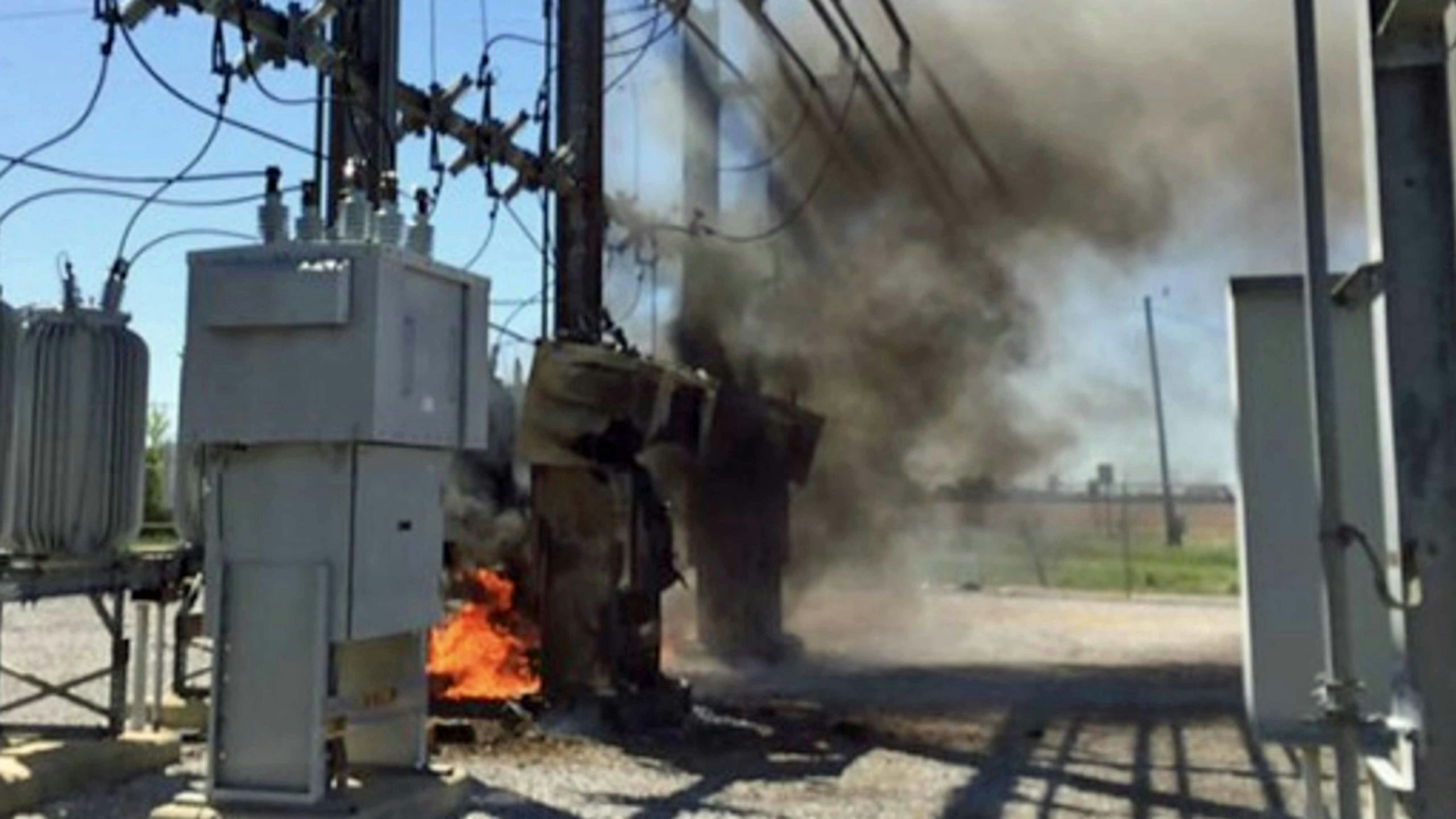The ease with which someone took out power to 45,000 homes in North Carolina over the weekend weekend shows how vulnerable rural electrical infrastructure is — even in Wyoming.
“Wyoming is unbelievably vulnerable to terrorism and vandalism against our infrastructure,” said Sen. Ogden Driskill, R-Devils Tower.
On Saturday, someone fired a gun into two substations in a rural part of North Carolina about 90 miles from Charlotte. The substations are owned by Duke Energy, which also operates wind farms in Wyoming.
The attack led to an outage that could last several days. With temperatures plunging Sunday morning, the county declared a state of emergency. Police have stated they have no information on a possible motive, dispelling rumors that it was in response to a nearby drag show.
Delicate Grid
Substations are critical pieces of electrical infrastructure, and when one goes offline it can affect thousands of homes.
In June 2019, a fire at a substation in Powell knocked out power for the town for several hours. The main cause was faulty equipment on the 30-year-old substation. After power was restored, Powell’s grid stability remained shaky as air conditioners sucked up power during the hot summer months.
Powell’s utilities department had a few series of planned outages over 18 months to conduct repairs and renovate the facility.
After a more than $1 million renovation, the town’s substation has enough capacity for the town, including future growth.
Not The First Time
The attack on North Carolina’s substations isn’t the first in the United States. E&E News reported in 2016 that an unknown gunman opened fire on a substation in rural Utah. Just a few shots from a high-powered rifle was enough to knock out power for 13,000 people. Repairs were estimated at the time to cost $1 million and take six months.
In 2013, one or more gunmen fired 100 rifle rounds at a substation in California. In that case, there were no outages from the attack.
Legislation Needed
Driskill was one of the co-sponsors of a bill in 2018 that would have implemented long prison sentences for anyone who vandalizes or impedes the operation of critical infrastructure.
The goal was to deter would-be “eco terrorists,” but opponents, such as American Civil Liberties Union of Wyoming, argued the bill was so broadly worded that it would affect legitimate protests.
Then-Gov. Matt Mead vetoed the bill, saying it was poorly crafted.
Driskill said Saturday night’s substation attack demonstrates that legislation is still needed.
“Nearly all of our infrastructure just sits out in the open, and it leaves a wide open for some type of terrorist attack,” Driskill said, adding that he’d support future legislation to protect infrastructure from such attacks.
This past summer, Driskill said he toured a hydroelectric facility near Afton, where metal doors had to be installed because people were using them for target practice and threatening the equipment inside.
Safeguards
The area of North Carolina is rural like much of Wyoming, and so shutting down a couple substations can impact a wide area.
Laurie Farkas, community affairs manager for Black Hills Energy, which serves customers in Wyoming, said the company is committed to the security of the infrastructure it manages.
“We have safeguards in place to protect our infrastructure against cyber and physical security threats and continue to evaluate and implement additional ongoing protections in response to changes in risk,” Farkas said.
Andy Buntrock, vice president of strategic planning and communications for Basin Electric Cooperative, said the nonprofit works with law enforcement and intelligence agencies at the local, state and federal levels to help prevent attacks before they happen.
In addition, Buntrock said, Basin Electric has installed cameras, motion detectors and barriers at critical sites. To prevent information from being used by would-be saboteurs, Buntock said he couldn’t go into detail.
“If something were to happen, we would work with law enforcement and our transmission team to respond or restore power as quickly as we can,” Buntrock said.
He said one of the best lines of defense against an attack is public surveillance.
“In the event they see something that seems out of place, they should call law enforcement or Basin Electric security,” he said.
Top Priority
David Eskelsen, spokesperson for PacifiCorp, which has millions of customers throughout the West, said the company is working with industry partners, as well as law enforcement, to monitor the situation in North Carolina and evaluate what happened there against the existing security measures in place to prevent an attack, where possible.
“As always, protecting the nation’s energy grid and ensuring a reliable and affordable supply of energy are top priorities for the energy industry and PacifiCorp,” Eskelsen said.
Jason Hollifield, Duke Energy’s general manager of emergency preparedness, said in a statement that, “This is a significant local outage that is affecting nearly all customers in Moore County. While some customers will be restored sooner, most customers should be prepared for an extended outage that could last until Thursday.”
Federal Energy Regulatory Commission Chair Rich Glick said the agency is continuing to monitor the situation, and grid security remains a top priority.
Utility Dive reports that the FBI has joined in the investigation.





